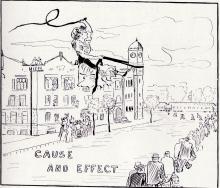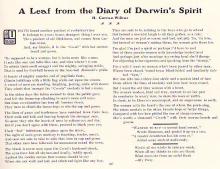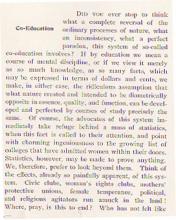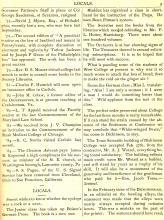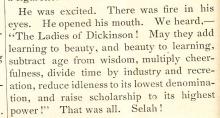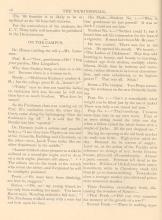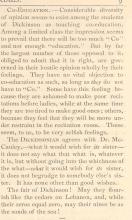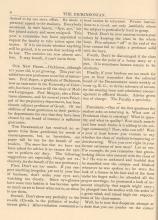Debate on Co-education
The 1909 Microcosm published a humorous piece, the "Debate on Co-Education: Spirited Riot in Harman Literary Meeting." This piece is about a debate amongst the ladies of the Harman Literary Society on whether co-education is better for women or if it is better for women to study at an all-girl's institution.

